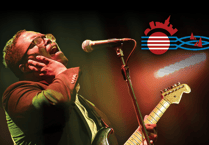The Maritime and Coastguard Agency (MCA), together with partners from the Royal Yachting Association (RYA), Royal National Lifeboat Institution (RNLI) and British Marine Federation (BMF), is urging boat owners to service their boats in preparation for the start of the new 2006 boating season.
In 2004, 3,870 men, women and children put themselves at risk due to breaking down at sea, mainly as a result of machinery failure or fuel problems. Some even suffered serious injuries as a direct result of going aground, suffering a collision, or from slips, trips and falls. Many of these problems could have been resolved if some routine maintenance had been undertaken at the start of the season. Every year, Coastguards, volunteer lifeboatmen and other seafarers assist numerous recreational boaters as a result of mechanical breakdown. The numbers are rising. Barrie Evans, Wales and West of England's regional operations manager for search and rescue, posed the question: "Is your boat ready for the season? If you had to even think about the answer, then your boat, (and possibly you) are most probably not! "Regardless of the type of boat you have, be it a dinghy, yacht, RHIB, motor-cruiser, power boat or a canoe, correct maintenance of your boat and its equipment is absolutely essential in helping to prevent accidents afloat. This is the personal responsibility of everyone who takes a recreational boat to sea. "If you need guidance on the sort of preparation that you must take, then take time to go through the pre-season checklists that are readily available through the motor boating magazines, or from the MCA, RNLI, RYA or BMF. "You could also arrange for an RNLI sea safety check. This is conducted by RNLI sea check advisers and is a free service to non-commercial boat owners. "It is also vitally important to make sure that you are physically fit and prepared for the type of boating that you do; your safety and the safety of others depends upon it. Make sure that you develop and maintain your skills in knots, chart work and navigation, as well as knowledge of rules of the road and the operation of any electronic aids you have on board. Make sure that you know how to use all your safety equipment and ensure that it is in date and in a good working order. Take advantage of any training courses you can to help you maintain and improve your skills. If you need diesel engine training, or any other boat related training, then contact the RYA who offer a wide range of courses. "In short, get trained, get serviced, get checked, get prepared, get a good boating magazine and look after the boat so that it will look after you and your family. "If you need specialist advice regarding any boating equipment, then contact your local boat agents or the BMF for advice. If you need any general guidance on preventing machinery failure or safety at sea, then contact the MCA or RNLI, who both supply a wide range of guidance literature for recreational boaters, all completely free of charge."



